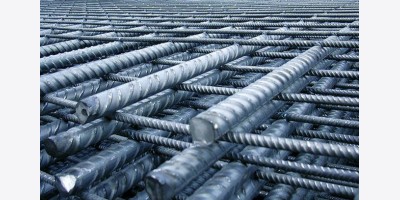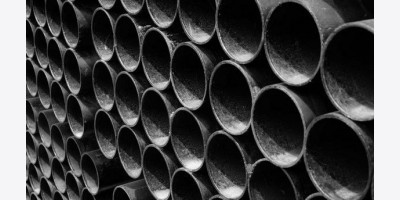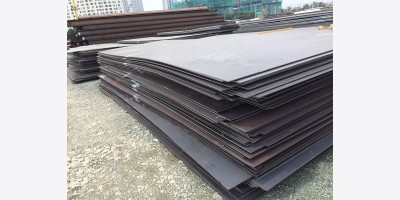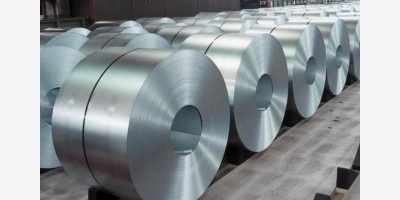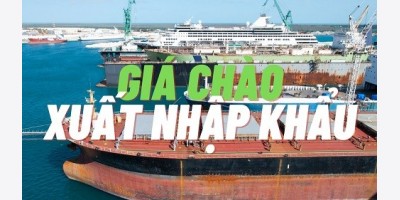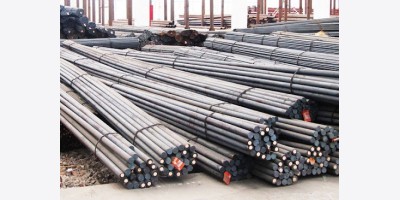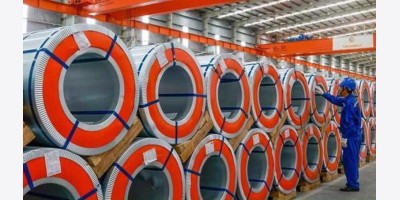| | ||
| Cold rolled coil import prices in Southeast Asia are expected to rise further after the lunar new year holidays. Offers from China for 1mm base annealed CRC were prevailing at $820/tonne fob which did not attract much buying. Traders speculate that these prices would be hiked to $850-860/t fob when China re-opens. | ||
A shortage of steel could rapidly develop in Egypt as local production has been reduced by the current unrest, and problems at the ports mean there will be few imports of billet or rebar, according to information obtained by | |||||||||||||||||||||||||||||||||
| Producers of rebar and wire rod in northwest Europe may struggle to achieve the very top offer prices they are quoting. However, they are not in a mood to respond to any modest softening in scrap prices by reducing steel prices below the latest concluded levels, market sources indicate. | ||
|
| ||
|
| ||||||||||||||||||||||||||||||
|
| ||
|
| ||
|
| ||
|
| ||
|
| ||
|
| ||
| The Singapore Exchange (SGX) plans to launch a steel billet futures contract, together with contracts for lead and tin, and is consulting the public on the proposed introduction of these new contracts for trading on SGX’s derivatives market. | ||
| China’s exports of seamless pipes rose to 3.81m tonnes in 2010, up 20% compared with the previous year. The increase, which took market observers by surprise, was attributed to rising global demand and mills’ continuing efforts to develop new markets outside of the USA and Europe.
| |||||||||||||||||||||||||||||||||||||||
| China added 1m tonnes of new stainless steel production capacity in 2010 and this in part led to a 28% or 2.45m tonne rise in China’s crude stainless output to 11.26m t last year, said the Stainless Steel Council of China Special Steel Enterprises Association (SSC) in a statement issued late last week.
| |||||||||||||||||||||||||||||||||||||||||||||
| Zhongyuan Special Steel (Zhongyuan), China’s largest retained mandrel maker and a major maker of heavy precise forgings and drill tools, plans to spend $167m on raising its forging capacity. Output will target the growing domestic demand for high-grade precision forgings. | ||
| Tuwairqi Steel Mills Ltd (TSML) is to start producing hot-briquetted iron in Pakistan for export to Asia. The company, a subsidiary of Al Tuwairqi Holding of Saudi Arabia, is collaborating with STX Corp of South Korea to advance TSML’s DRI plant by producing HBI as well, | ||
| Rising raw materials costs continue to hurt the profit margins of Indian steelmakers, with JSW Steel reporting a 26% year-on-year slide in pre-tax profits to Rs 5.3bn ($115.4m) for the October-December 2010 quarter.
| |||||||||||||||||||||||||||||||||||||
| China's manufacturing sector began 2011 on a strong footing, according to HSBC. Its China Manufacturing Purchasing Managers' Index (PMI) rose in January to 54.5 from 54.4 in December. The pick-up was due to an increase in new domestic orders. | ||
| Steel inventories held by Japanese steelmakers and dealers at end-December climbed slightly over end-November levels but the Japan Iron & Steel Federation (JISF) that assembled the data is unconcerned. | ||
| Indian pig iron producer Atibir Industries Co. Ltd (AICL) expects to double capacity at its plant in Bhorandiha in the eastern Indian state of Jharkhand to 600,000 tonnes/year from the current 300,000 t/y by late-2012, | ||
| China’s central government is increasing the pressure on steel producers to force them to shut down their outdated steelmaking capacity, | ||
| Tata Steel Europe increased its reversing mill plate prices by £90/tonne effective yesterday, the company tells | ||
| Locally produced hot rolled coil prices in Turkey have not changed as demand is not very strong and raw material price increases have stopped. Besides, the price rise in December and January was faster than expected. | ||
| Newport-based coated steel producer Coilcolor rescued Falcon Steel from administration on 27 January, managing director Dean Proctor tells | ||
| The ceo of Palini e Bertoli, the Evraz group’s Italian plate mill, has stepped down, | ||
| Plate stocks are at a healthy level in Germany, and there is little competition from overseas imports, | ||
| The German steel fabricating company Tröster Systeme und Komponenten (TSK) will start production in its sections and profiles service centre in Bandirma, Turkey on 18 February, | ||
| Turkish mills’ domestic prices for rebar are unchanged at around TL 1,350/tonne ($849/t) this week and some producers just refrain from making offers. Trader prices are available at around TL 1,250-1,280/t ($786-805/t), market sources tell | ||
| Suppliers of stainless steel bar in the UK are busy, with strong demand generating plenty of enquiries, and base prices are increasing. | ||
| High-speed steels producer Erasteel, which is owned by French group Eramet, increased its production dramatically last year, particularly in the second half, ceo Victor Polard tells | ||
| Montenegrin steelmaker Zeljezara Niksic (ZNK) envisages ramping up production at its new electric arc furnace meltshop in the second quarter, the company tells | ||
| Italian mini-mills Feralpi, Alfa Acciai, Ferriera Valsabbia and Ferriere Nord have called off a proposed merger, | ||
| Turkish steel mills expect to produce 33m tonnes of crude steel in 2011, and crude steel production for flat products is expected to rise by around 40 % to 10.5mt from 7mt in 2010. In this respect, Turkey’s crude steel production for flat products will have more than doubled in two years, according to Veysel Yayan, secretary general of the Turkish Iron & Steel Producers Association (DCUD). | ||
| Internal market sales by European Union steel stockholders and service centres recovered in 2010 compared to 2009, distributors’ association Eurometal says in its latest report sent to | ||
| Jacques Dham’s term as president of Eurometal ended at the European distributors' association’s general assembly on 26 January 2011, | ||
| Finland-based structural steel fabricator Peikko Group sees clear signs that the construction market in German-speaking areas of Europe and Scandinavia is picking up, | ||
| Steel prices in Poland are expected to continue climbing throughout February and into March, after weeks of increases already, | ||
|
| ||
|
| ||
|
| ||
| Russian producer of special steel long products, Izhstal, has got a new managing director, Konstantin Kretov, | ||
|
| ||
|
| ||
|
| ||
| Licenses to import steel products into the US were more than 1.8m tonnes for the month of January, suggesting a 10% rise in steel import tonnages from the month prior. | ||
| The surcharge levied by US producer AK Steel on its electrical steel products is rising by $80/short ton for March deliveries. | ||
| US scrap prices may dip this month, but don’t look for the bottom to fall out of the market anytime soon, scrap sources tell | ||
|
| ||
| |||||||||||||||||||||||||||||||||||||||||||||||||||||||||
|
| ||
|
| ||
|
| ||
|
| ||
|
| ||
|
| ||
|
| ||
|
| ||
|
| ||
| The volume of iron ore swaps cleared in January hit a record high of 2.62m tonnes worth approximately $470m. The previous record was in April 2010 when 2.59mt worth $450m were cleared. | ||
| Switzerland-based mining group Xstrata has completed construction of a plant to produce magnetite iron ore as a by-product at its Ernest Henry copper mine in Australia. | ||
| | |||||||||||||||||||||||
In a sign that the US economy may be strengthening, the latest market survey results from The Steel Index (TSI), released this week, show that more companies in North America expect higher demand since last week. However, the number of companies expecting higher prices in the next three months has fallen in all regions. | |||||||||||||||||||||||



